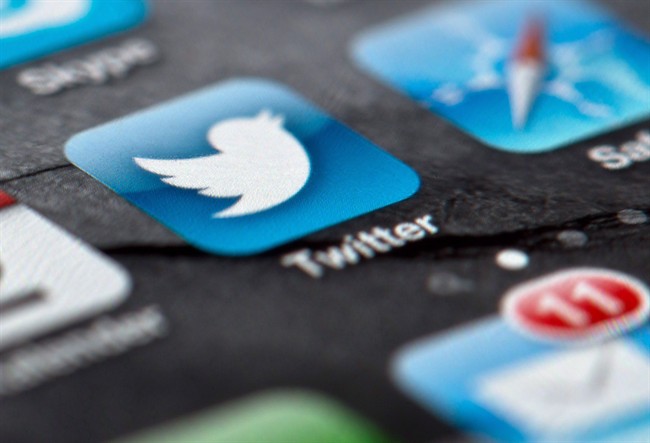What do Drake, Kylie Jenner, Keith Richards and the NFL all have in common? Not much, besides the fact that all of their Twitter accounts were hacked in recent days.

Over the last week, a growing number of celebrities have had their Twitter accounts taken over by hackers who use the accounts to poke fun at their victims, send bomb threats to airlines and even spark rumours of celebrity deaths.
The situation escalated Tuesday after hackers gained control of the official NFL Twitter account and tweeted that NFL Commissioner Roger Goodell had died.

The tweet was immediately debunked by NFL spokesperson Brian McCarthy who tweeted, “The @nfl Twitter account was hacked. @nflcommish is alive and well.”
And American singer Lana Del Ray was hacked minutes later.
Electronic artist David Guetta’s account was also hacked Tuesday by the same hackers that took responsibility for taking over Zuckerberg’s account.
READ MORE: Hackers may have used Mark Zuckerberg’s stolen LinkedIn password to hack his Twitter account
On Monday, Toronto-born rapper Drake, country star Kellie Pickler, musician Anaïs Mitchell and Linkin Park frontman Chester Bennington all reported that their accounts had been hacked.
And over the weekend, hackers used Jenner’s account to tweet messages making fun of the reality star, including one that read, “I love being so famous with no talent.”
Hackers then took over the account for Jack Black’s band Tenacious D and tweeted that Black had died.
Accounts belonging to Rolling Stones guitarist Keith Richards, alternative band Bon Iver and Twenty One Pilots frontman Tyler Joseph have all also been hacked.
Why are all of these celebrities being hacked?
While it’s unclear whether all the account breaches are related, many have speculated hackers are using information from a recently released database of passwords and user names stemming from old data breaches at LinkedIn and Myspace.
It’s believed over 164 million email addresses and passwords were exposed in the 2012 LinkedIn breach.
But nearly 360 million email addresses and passwords are believed to have been leaked from the Myspace breach, dating back to 2008.
“A number of other online services have seen millions of passwords stolen in the past several weeks, and we know far too many people use the same password for multiple things online,” a Twitter spokesperson told Global News.
“We recommend people use a unique, strong password for Twitter.”
It may seem unlikely that celebrities flock to LinkedIn – a social network designed for professional networking and job hunting. But let’s not forget that Myspace was commonly used in the early 2000s by regular users and celebrities alike.
These celebrities misfortunes are a great reminder that data breaches can lead to real-world consequences.
Global News has reported on dozens of data breaches, each time reminding readers that updating their passwords, changing their passwords and creating secure passwords is very important in today’s day and age.
Here are some tips for creating a secure password:
In the case of a data breach, if you used the same password for multiple accounts you should always make sure to change that password across all accounts – not just the one that was affected by the data breach. Moving forward, try not to use the same password for any two accounts.
Stay away from easy-to-guess passwords like “123456″ or “password” and easy-to-guess identifiers, like your dog’s name.
Numbers included in a password should never be something easy to guess based on the user. That means your age, the current year, or your address are not good choices. Similarly, the longer the password the better.
READ MORE: How to protect yourself from security breaches on social media sites
Passwords that use up to ten upper- and lower-case letters mixed with numbers are proven to be more secure – despite being hard to remember.
One tip is to construct a password from a sentence, mix in a few upper case letters and a number – for example, “There is no place like home,” would become “tiNOplh62.”
And remember, try not to use the same password for any two accounts.






Comments